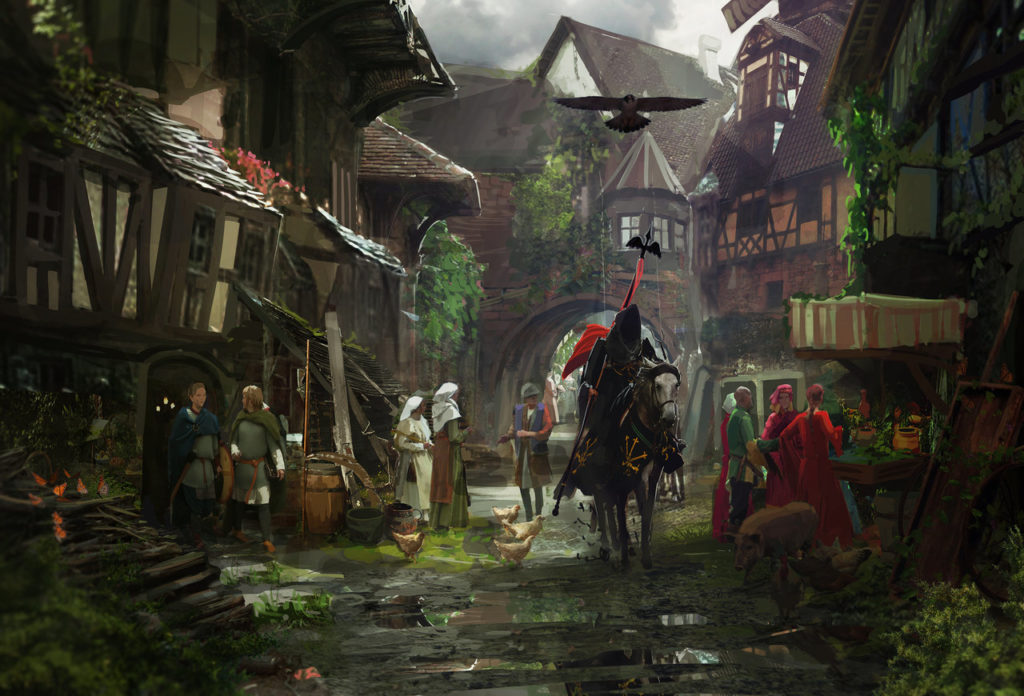
Let it be known that the genre in itself isn’t an invention per se of Tolkien, references to goblins, elves and dwarves have existed in northern European folklore stories centuries earlier (“hobgoblin” The Pilgrim’s Progress – 1678; “elves” Beowulf – 8th/11th century; “dwarf” Poetic Edda & Prose Edda – 13th century).
The genre became the popular theme it is today, found in video-games, card games, tabletop & role-playing games and of course in books, still, in great part thanks to Tolkien. But there is something that seems to draw us into its world, not just because of its magical characteristics but many other aspects as well, not all as obvious. When thinking about the medieval fantasy stories I can’t help but feel a yearning to not just evade into it (as integrally as possible) but also “go back in time” and find myself living that reality. I firmly believe this view of looking outside our existing situation is double sided in that it is just as much an indication of our willingness to reject our known reality, and more than just a form of global evasion “of reality”. I believe it is also a consequence of our looking inward and not being pleased with what we see, maybe not being able to verbalize it in as much as feel a certain sense of discomfort.
The medieval fantasy world features a very specific demographic division, mostly based on race (or “species” such as humans, dwarves and elves) which carry with it intricately profound implications on their ways of life and most of its content. It would somehow seem a bit off to have a world populated by dwarven warriors “fed” by might human farmers and massacred by elves. These demographic characteristics decided upon the social aspect of their life as well. It was a world in which Emile Zola’s formula proved applicable, that one’s fate is linked to a combination of gender, heredity and social environment, or in other words, (social) determinism. It was also a world of individual achievements and popular recognition based around it. This seems to clash directly with the idea behind humanism where everyone is born equal, all starting from a common standardized but also normalized “level”, seemingly the lowest one where each individual is given an equal chance to ascend. In this view, humanism as it is referred here, applies almost only to one’s point of origin, not so much direction or actual end result.
Even if we live in a society at a time where technology has leaped forward exponentially and we are already thinking of “space conquest”, this evolution doesn’t seem to have been such a natural one as an economical one. This will of people to reject their reality for another one, seemingly more simplistic in essence, could be an obvious indication of this chasm between what we want out of our lives and where global economics is taking us. Do we really “need” the ability to order pizza’s moving one’s finger across a screen while driving a car in traffic? Where is the line between the actually needed, important things and the superfluous? Another proof of this deviance in projected “wants” is the advent of more self-sufficient and economically independant communities. Sadly, the loud cry of popularism and its dulling entertainment go a great distance in deafening these small and external colonies out of notice. (.. unfinished)
© Copyright – Christian Aamlid
Be First to Comment